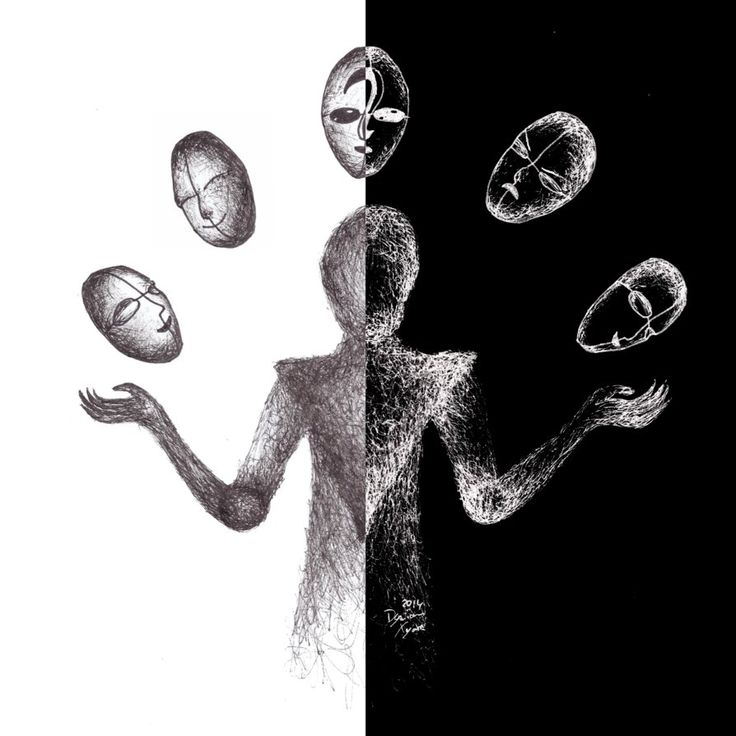Who am I? How am I?
Learning the spirit of self-actualization, by oneself.-By Tamanna Das

It comes as no surprise that asking oneself who they are is a matter of controversial and confusing debate. The common answer to the rather vague question is that everyone knows themselves best, and to think otherwise is folly and illogical. However, the extent to which we know ourselves to define our persona to someone is often lagging and commonly over exaggerated.
The basis of a personality is known to have five major aspects. Out of these, the intellectual and emotional aspects are considered to be the most influential and persuasive, both to another person and to the individual itself. Before defining ourselves to confinement and disregarding the fact that we cannot change, we must understand the pains of having to fixate ourselves, shackled to one thing by no one but us. An easy way to understand how we affect our mental image more than our friends, colleagues, peers and family; it is simply important to ask ourselves a set of questions and make rational and thoughtful judgments regarding self-actualization.
Who am I?
The answer to this is made on the basis of both our physical appearances and our emotional intellect. The one who can fulfill the criteria of knowing their entire body, mind and soul is known to be the self-actualized individual. Do you know how your eyes are shaped? Or how tall you are? Are you aware of your likes and dislikes? Or your social capabilities in various settings? These answers are the ones that will ultimately make us more aware of ourselves. What some of us fail to realize is that we are our personality. The body is the physical medium to deliver the thoughts and feelings of our self, the soul, or as we scientifically call it, the mind. The mind is the reasoning system that helps us build and thrive. The expectation of our minds to be the same for us and every other individual out there is a foolish mistake we all often make as a race. The perception of a person is impossible to alter, but we as our own creatures, are always aware of our deeds, words and actions. Hence, the only person who can change the persona of us, is us. So the answer to who you are, lies within your past, your present, and your hopes for the future.
How am I?
It is important to know who we are but to develop a constant connection with ourselves that is positive and not detrimental to our daily activities; we must also know how we are. It is incredibly essential to reflect on your behavior throughout the day, either with materialistic things, food, people, your family and yourself. Only when we put ourselves out of our bodies for a minute and see events unfold can we make better judgments about how we portray ourselves to a multitude of people and how we can become better, more cultured versions of ourselves. The outcome of one’s self-actualization lies within their reality and how we shape our reality to be. People living in strikingly similar situations can very commonly experience extremely different outcomes in life, only due to their perception of those situations.
What is Self Actualization?
Under highly technical terminology, self-actualization is when a person reaches full self-potential and knows clearly what they wish to achieve and the path to it. Under the Maslow hierarchy of needs, it lies on the top section, hard to reach and impossible to accomplish without first achieving security, basic needs and emotional support. Simply, it is the stage in a person’s mind where they learn to appreciate everything in life and have no negative emotions of rage, jealousy, or decisions driven by anger. This seems rather unlikely to happen as quickly as we assume but the key point of self-actualization is to realize that we are meant for change, success and love, and we are the only ones who can help ourselves achieve it.
According to renowned psychologist Carl Rogers, he said in 1967 that humans have a tendency to actualize and that the process of self-actualization can only be received by making strategic judgments of our past actions. He describes what is known as an overlap between the self-image or the persona of us that we have the persona of the ideal- self, implying who we can be and who we can develop into. Hence, it is a process that lasts for our entire lifetime and can take various forms for various people. No human is the same after all. Genetically, almost 95% of humans are similar, but no two people have the same persona, and mind, not even twins. Therefore, the structure of your fragmented growth is yours and yours only.
How do we achieve peace with ourselves?
People who achieve self-actualization are often able to maintain long-lasting and committed relationships with nature, one another, and a community throughout their lifetime. They tend to be good skeptics about what is rationalially correct and what is fundamentally wrong.
Self-actualized people are true to themselves and accept others just as they are. Self-actualization always starts with knowing who you are and having the will to know those around you. Without a proper expression of gratitude and appreciation for the world we live in, one can never fully realize their own worth. So take a minute and jot down what you know about yourself, how you spend your time, what emotions you display, and create some affirmations for yourself. Once done, you're already halfway there to being a person of greater self-actualization than anyone else.